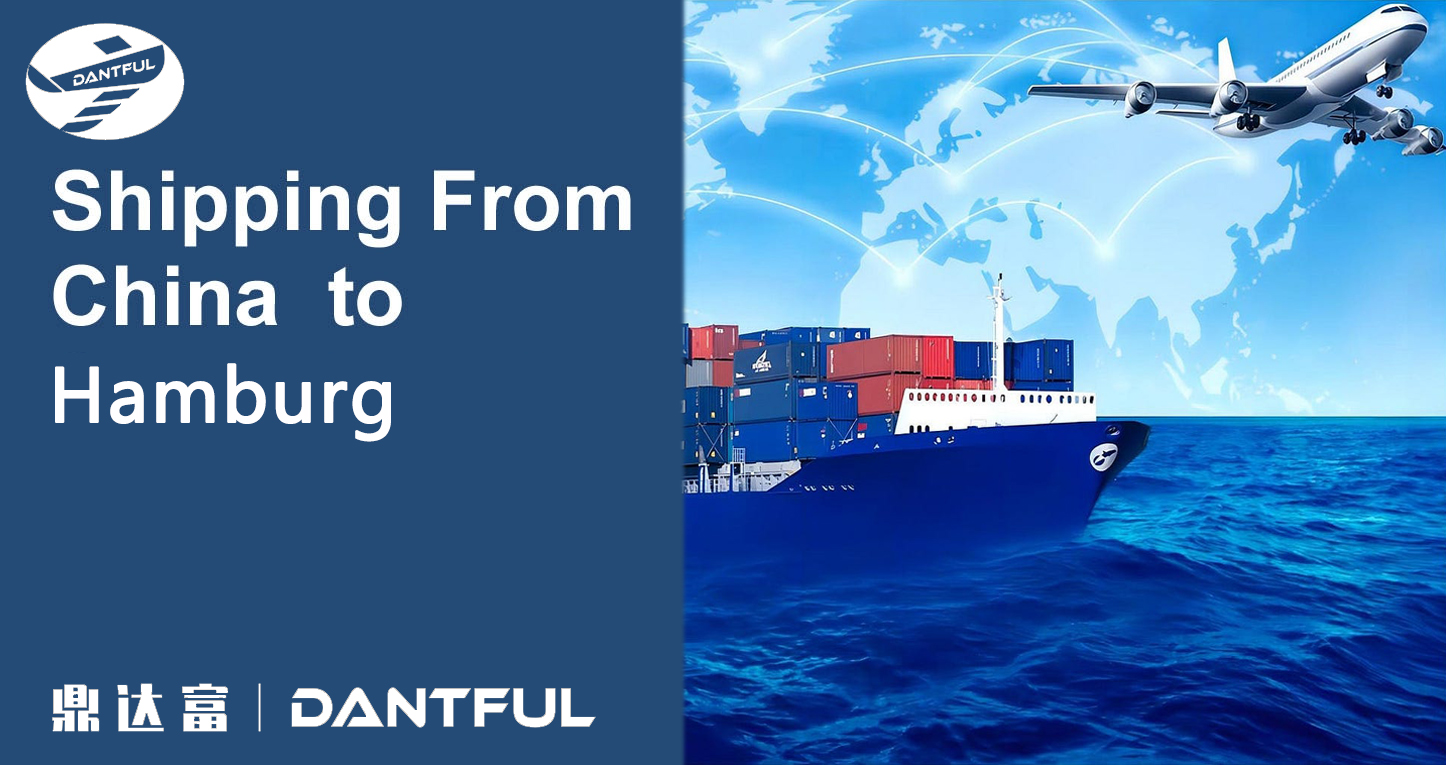
Shipping from China to Germany, particularly shipping from China to Hamburg, demands careful consideration of essential factors such as cost, regulatory compliance, and practical tips to ensure a successful and cost-effective transportation process. The volume of shipping from China to Hamburg has steadily increased over the years, reflecting the growing trade relationship between these two economic powerhouses. Hamburg, as one of Europe’s major ports, serves as a key gateway for goods entering the European market from China.
Dantful has created this comprehensive guide to help you gain a clear understanding of the shipping process from China to Hamburg, providing valuable insights and tips for a smooth and cost-effective international trade experience.
Factors to consider when shipping from China to Hamburg
When shipping from China to Hamburg, several critical factors must be considered.
- Firstly, the choice of transportation mode, whether by sea, air, or land, significantly impacts both cost and transit time.
- For example, sea freight is generally more economical for large shipments, such as electronics or textiles. In contrast, air freight is faster but tends to be more expensive, making it suitable for time-sensitive products like electronics.
- Secondly, navigating the complex customs regulations and documentation requirements in both China and Germany is essential for a smooth process. Ensuring proper paperwork, such as invoices and certificates of origin, is complete and accurate is crucial to avoid delays and compliance issues. Additionally, understanding the fluctuations in shipping rates due to market conditions and fuel prices is vital for cost-effective planning.
- Finally, selecting a reliable shipping partner can simplify the process, providing guidance and expertise to ensure your cargo reaches Hamburg efficiently and securely.
Here are the five main factors to consider when shipping from China to Hamburg, along with examples to explain each factor:
- Transportation Mode: The choice of transportation mode has a significant impact on your shipping process. For instance, if you need to transport perishable goods, like fresh seafood, from China to Hamburg, air freight is ideal due to its speed. In contrast, if you are dealing with a large quantity of less time-sensitive items, such as furniture, sea freight may be more cost-effective, even though it takes longer. Understanding the nature of your cargo and its urgency will help you decide between air, sea, or land transport. Customs
- Compliance: Navigating customs regulations and documentation requirements in both China and Germany is crucial. For example, if you plan to ship textiles, you must comply with specific labeling and safety standards outlined by German customs authorities. Please meet these requirements to avoid delays and additional expenses. It is essential to thoroughly research and fulfill all customs obligations to ensure a smooth passage for your goods.
- Packaging and Handling: Proper packaging is vital to protect your goods during the journey. Suppose you are exporting delicate ceramic art pieces from China to Hamburg. In that case, you need to invest in sturdy, shock-absorbent packaging materials and proper cushioning to prevent breakage. Different types of cargo demand different packaging methods, so understanding these needs is essential to safeguard your shipments from damage.
- Cost Considerations: Understanding the cost structure of your shipping process is critical for budgeting. For example, suppose you are shipping machinery from China to Hamburg. In that case, you should factor in not only the transportation costs but also potential storage fees, customs duties, and taxes upon arrival in Germany. Staying informed about fluctuations in shipping rates due to market conditions and fuel prices can help you plan your finances effectively.
- Shipping Partner: Choosing a reliable shipping partner, such as Dantful, can streamline the shipping process. A trusted partner offers expertise in handling various types of cargo, ensuring that your goods, whether consumer electronics, textiles, or machinery, are transported efficiently and securely. They can also guide documentation, customs compliance, and any unexpected challenges that may arise during transit. This partnership can significantly reduce the complexities associated with international shipping and contribute to a successful shipping experience from China to Hamburg.
Choosing the best shipping method for Hamburg
Choosing the best shipping method for Hamburg depends greatly on the nature of your products and their specific requirements. For instance, if your products are highly perishable, like fresh produce or seafood, air freight would be the most suitable option due to its speed. On the other hand, if you are dealing with bulky or heavy items, such as industrial machinery, sea freight might offer a more cost-effective solution. The impact of your products, whether they are fragile, time-sensitive, or have unique storage needs, should guide your choice of shipping method. It is essential to consider these factors carefully to ensure that your goods reach Hamburg in the best condition, on time, and within your budget.
Air freight from China to Hamburg
Shipping goods from China to Hamburg via air freight involves several steps. First, you will need to choose a reputable air cargo carrier or a freight forwarder experienced in international air shipping. Provide detailed information about your cargo, including weight, dimensions, and any special handling requirements. Properly package your goods to protect them during transit. Ensure all necessary documentation, such as invoices and customs declarations, is complete and accurate. Your chosen shipping partner will handle the logistics, including booking cargo space, customs clearance, and delivery to the final destination in Hamburg.
Advantages
- Speed: Air freight is the fastest mode of transportation, ensuring your products reach Hamburg quickly. This is advantageous for time-sensitive goods, such as electronics or fashion items with seasonal demand.
- Reliability: Air carriers often have strict schedules, reducing the risk of delays due to weather or other factors. This reliability is crucial for meeting tight deadlines.
- Global Reach: Air freight offers access to a vast network of airports, making it suitable for shipping to remote or less accessible locations in Hamburg or other parts of the world.
Disadvantages
- Cost: Air freight is generally more expensive than sea or land transportation. The premium cost can significantly impact your overall shipping budget, making it less suitable for low-value or bulky cargo.
- Limited Cargo Space: Due to space constraints on aircraft, air freight may not be suitable for large or oversized shipments.
- Environmental Impact: Air freight has a higher carbon footprint compared to other modes of transportation, which may not align with sustainability goals.
Sea freight from China to Hamburg
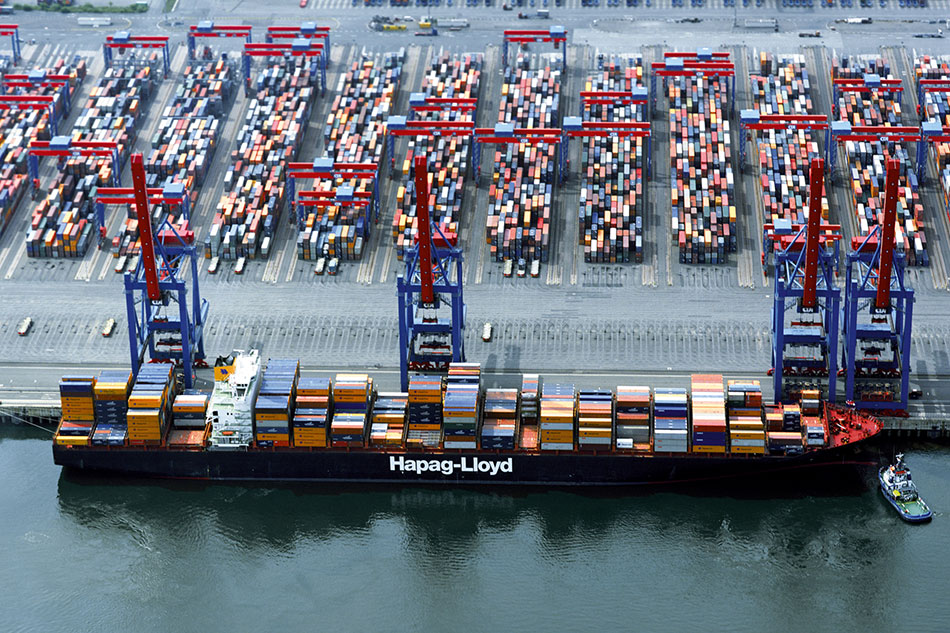
Shipping goods from China to Hamburg via sea freight involves several key steps. Begin by selecting a reputable shipping company or freight forwarder with experience in ocean shipping. Provide detailed information about your cargo, including the type, quantity, weight, and dimensions. Properly package your goods to withstand the rigors of ocean transport. Prepare all required documentation, including bills of lading, commercial invoices, and customs declarations. Your chosen shipping partner will handle the logistics, including booking cargo space on a container ship, customs clearance, and arranging for inland transportation upon arrival in Hamburg.
Advantages
- Cost-Effective: Sea freight is generally more cost-effective than air freight, making it an attractive option for bulk shipments or products with lower profit margins.
- High Cargo Capacity: Container ships have ample cargo space, making sea freight ideal for transporting large or oversized items, such as industrial machinery or vehicles.
- Environmental Impact: Sea freight is often considered a more environmentally friendly mode of transportation compared to air freight, as it produces fewer greenhouse gas emissions per unit of cargo transported.
- Stability: Ocean shipping is less prone to disruptions due to weather conditions or capacity constraints, providing a stable and predictable transportation option.
Disadvantages
- Longer Transit Times: Sea freight is slower than air freight, with transit times measured in weeks rather than days. This can be a disadvantage for time-sensitive goods.
- Complex Documentation: The documentation requirements for sea freight can be more extensive and complex, requiring careful attention to detail.
- Limited Accessibility: Some landlocked areas in Hamburg may not be easily accessible by sea, necessitating additional inland transportation.
DDP (Delivered Duty Paid) Shipping from China to Hamburg
DDP shipping is a comprehensive shipping solution in which the shipper (usually the seller or exporter) takes responsibility for all aspects of the shipping process, including transportation, customs clearance, import duties, taxes, and final delivery to the buyer’s location in Hamburg. It can be more costly compared to other shipping methods, and buyers may have limited control over certain aspects of the process.
Advantages
- Reduced Hassle: DDP shipping minimizes the administrative burden on the buyer, as the seller takes care of customs clearance and import-related formalities.
- Predictable Costs: With DDP shipping, the buyer knows the total cost upfront, as it includes all expenses such as shipping, customs duties, and taxes.
- Streamlined Process: DDP shipping streamlines the entire supply chain, ensuring that goods reach their destination in Hamburg without delays caused by customs issues.
Express Shipping from China to Hamburg
Express shipping from China to Hamburg is a swift and efficient method facilitated through international courier companies such as DHL, FedEx, or UPS. To arrange it, one must start by selecting a reputable courier service with a strong presence in both China and Hamburg. Then, contact the courier company, providing comprehensive shipment details, including the size, weight, contents, and value of the goods. Proper packaging and adhering to courier guidelines are crucial. Next, prepare all required documentation, encompassing invoices, packing lists, and customs declarations. The courier company will take charge of customs clearance, covering import duties and taxes, while their real-time tracking feature allows for continuous monitoring. Ultimately, the courier delivers the goods directly to the specified address in Hamburg, making it an expedient choice for time-sensitive shipments.
Advantages
- Speed: Express shipping is exceptionally fast, with transit times usually measured in days rather than weeks. This is advantageous for time-sensitive or urgent shipments, such as spare parts or medical supplies.
- Convenience: Express couriers offer door-to-door service, making the shipping process hassle-free for both senders and recipients.
- Reliability: Courier companies have a high level of reliability and efficiency, ensuring timely deliveries with minimal disruptions.
- Tracking: The ability to track shipments in real time provides transparency and peace of mind.
Road Freight from China to Hamburg
Road freight from China to Hamburg involves the transportation of goods overland through a combination of trucks, trains, and potentially sea or rail connections; arranging road freight from China to Hamburg entails a comprehensive process. It begins with the selection of a reliable road freight provider experienced in international shipping between the two locations. Subsequently, detailed cargo information, including weight, dimensions, and characteristics, is communicated to the chosen freight company.
Proper packaging and labeling are essential to ensure secure transportation. The preparation of essential shipping documents, such as invoices and customs declarations, must adhere to international shipping regulations. Collaborating with the freight provider is crucial for efficient customs clearance at both the Chinese and German borders, covering import duties and taxes.
Advantages
- Flexibility: Road freight offers flexibility in terms of cargo size, making it suitable for both small and large shipments.
- Accessibility: Roads provide access to a wide range of locations in Hamburg and its surrounding areas, allowing for efficient distribution.
- Cost-Effective: Road freight is often more cost-effective than air freight and can be competitive with sea freight for certain types of cargo.
- Reliability: Road freight services can offer predictable transit times and schedules, contributing to reliable deliveries.
Disadvantages
- Transit Time: Road freight is generally slower than air freight, making it less suitable for time-sensitive shipments.
- Weather and Road Conditions: Adverse weather and road conditions can affect transit times and may lead to delays.
- Customs Complexity: Customs procedures at border crossings can be complex, requiring meticulous documentation and potentially leading to delays and additional costs.
Rail freight from China to Hamburg
Arranging rail freight from China to Hamburg involves a well-structured process. It commences with the selection of a reputable rail freight company experienced in international rail transportation between these two locations. Detailed cargo information, encompassing weight, dimensions, and cargo characteristics, is then communicated to the chosen rail freight provider. Proper packaging and labeling ensure that the goods can withstand the rigors of rail transportation. The preparation of essential shipping documents in compliance with international shipping regulations is imperative, as it facilitates customs clearance at both the Chinese and German borders, covering import duties and taxes. Collaborative route planning, taking into account rail connections, sea links, border crossings, and delivery schedules, enhances the efficiency of the journey.
Advantages
- Cost-Efficiency: Rail freight often offers a balance between cost and speed, making it an economical choice for various cargo types, especially when compared to air freight.
- Environmental Benefits: Rail transport is typically more environmentally friendly than road or air transportation, producing lower emissions per unit of cargo.
- Reliability: Rail services often provide dependable schedules, reducing the risk of delays and ensuring predictable transit times.
Disadvantages
- Transit Time: Rail freight is generally slower than air freight, which may not be suitable for time-sensitive shipments.
- Limited Accessibility: Rail networks may not reach all locations, necessitating further inland transportation by road or other means.
- Complex Customs Procedures: Customs processes at border crossings can be intricate, potentially causing delays and requiring meticulous documentation.
Air Freight vs. Sea Freight to Hamburg
Air freight and sea freight are two primary methods for shipping goods to Hamburg, each offering distinct advantages. Air freight excels in speed, making it ideal for time-sensitive shipments. It also provides reliable schedules and excellent tracking capabilities. Conversely, sea freight is cost-effective for bulk or heavy cargo and offers substantial cargo capacity. It is environmentally friendly and can serve as a practical option for goods that are not time-sensitive. The choice between these methods often hinges on the specific requirements of the cargo, budget constraints, and the urgency of delivery.Example Comparison: Let us consider an example involving two different shipments, each destined for Hamburg:
- Shipment 1 – High-Value Electronics (e.g., smartphones):Air freight is advantageous for shipping these electronics due to their high value and time-sensitive nature. The speed of air transportation ensures they reach the Hamburg market swiftly and minimizes the risk of product obsolescence. However, it is a more expensive option.
- Shipment 2 – Industrial Machinery (e.g., factory equipment): Sea freight is the preferred choice for shipping industrial machinery. Although it takes longer, the cost-effectiveness of sea transportation aligns well with bulky and heavy cargo-like machinery. These goods are only sometimes needed upon arrival, Making sea freight the more economical option.
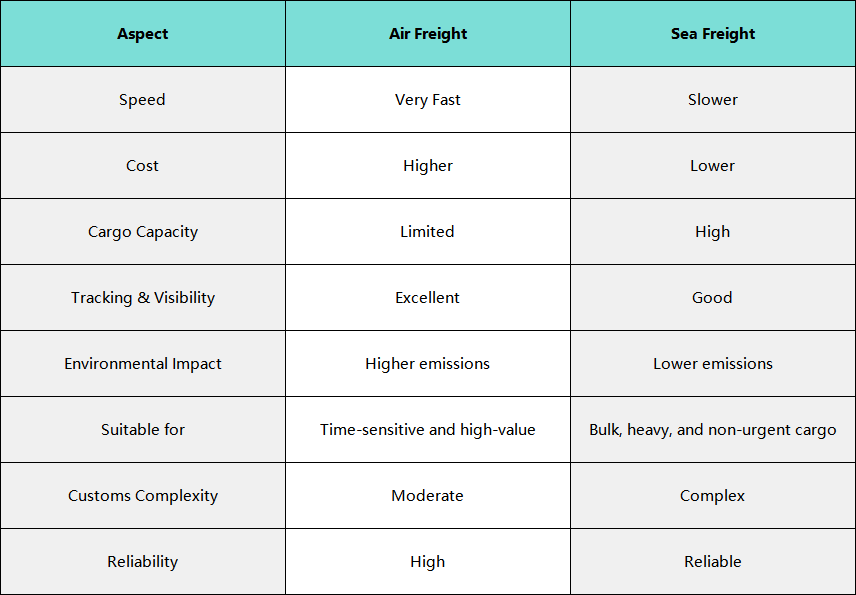
The choice between air freight and sea freight depends on factors such as cargo type, budget, urgency, and environmental considerations. While air freight offers speed and reliability, sea freight is cost-effective and ideal for larger or less time-sensitive shipments. This illustrates the importance of assessing specific needs when deciding on a shipping method.
Estimated Costs and Transit Time for Shipping to Hamburg
The estimated costs and transit time for shipping to Hamburg can vary significantly depending on the chosen shipping method. Air freight, known for its speed, is typically more expensive, with costs varying based on cargo weight and size. Transit times by air are generally measured in days, making it suitable for time-sensitive shipments. In contrast, sea freight offers cost savings, but it comes with longer transit times, often measured in weeks. The cost of sea freight depends on factors such as container size and shipping volume. Selecting the right method involves balancing the urgency of delivery with budget considerations, ensuring a cost-effective and timely shipment to Hamburg.
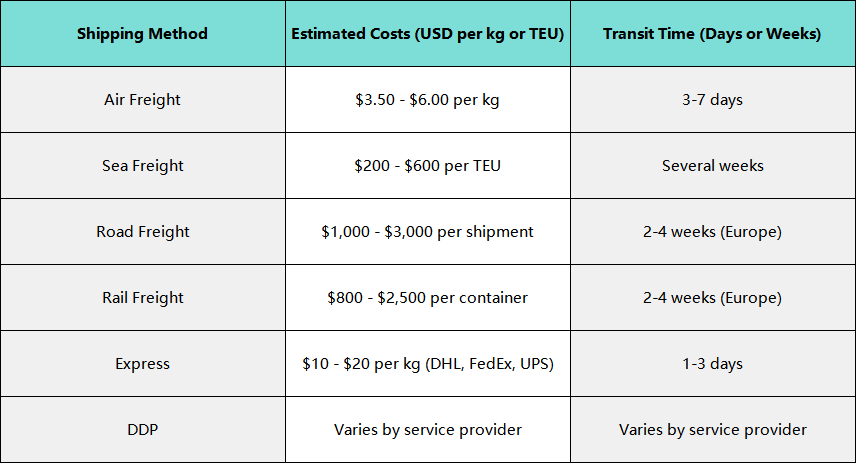
Please note that the estimated costs and transit times provided here are general guidelines and can vary based on factors such as cargo volume, weight, specific routes, and current market conditions. It is essential to consult with shipping providers and obtain customized quotes for accurate cost and transit time information based on your specific shipment.
Essential Documentation for Shipping to Hamburg
When shipping from China to Hamburg, several essential documents are required to facilitate the smooth movement of cargo and comply with customs regulations. These documents include a commercial invoice detailing the transaction value and parties involved, a packing list enumerating the contents of each package, a bill of lading (B/L) issued by the shipping carrier, a certificate of origin to specify the goods’ source, customs declarations providing crucial information for clearance, any necessary import licenses or permits, and, if applicable, an insurance certificate to protect the shipment. Ensuring the accuracy and completeness of these documents is vital to avoid delays and customs issues and ensure a successful transit of goods to Hamburg.
- Commercial Invoice: Create a detailed invoice that includes the seller’s and buyer’s information, a description of the goods, their quantity, unit price, and total value. Ensure the currency used is clear; the commercial invoice is vital for customs clearance and serves as proof of the transaction’s value.
- Packing List: List all the contents of each package, including their description, quantity, weight, and dimensions. Ensure the list corresponds with the commercial invoice. The packing list helps customs authorities verify the contents of the shipment and aids in cargo handling.
- Bill of Lading (B/L): The shipping carrier or freight forwarder typically issues the B/L. It should contain details about the cargo, its origin, destination, and terms of shipment.The B/L serves as a receipt, contract of carriage, and title to the goods. It is crucial for cargo release and ownership transfer.
- Certificate of Origin: This document may need to be issued by a chamber of commerce or an authorized organization. It states the origin of the goods, helps determine eligibility for preferential trade agreements, and assesses applicable import duties.
- Customs Declaration: Accurately complete customs forms with detailed information about the goods, their value, classification codes, and country of origin. Customs declarations are essential for customs clearance, as they provide authorities with crucial data for processing.
- Import License or Permit: Obtain any required import licenses or permits in advance from relevant authorities in Germany, ensuring they are up to date. Certain goods may require specific permits or licenses for entry into Germany, and failing to obtain them can result in delays or penalties.
- Insurance Certificate (if applicable): If you have purchased cargo insurance, ensure you have the insurance certificate ready to provide proof of coverage. Insurance helps protect your goods in case of loss or damage during transit.
- Delivery Order (if applicable): The delivery order is issued by the shipping carrier or agent and specifies the delivery details and location, It is essential for coordinating the final delivery of your goods to the specified destination in Hamburg.
- Other Documents (if applicable): Depending on the nature of your cargo, additional documents such as certificates of compliance, Phytosanitary certificates, or product-specific documentation may be required.
Properly preparing and ensuring the accuracy of these essential documents is crucial for a smooth and efficient shipping process from China to Hamburg. Working with experienced freight forwarders or customs brokers can also be beneficial in navigating the complexities of international shipping documentation.
How to Handle Customs Clearance in Hamburg?
Customs clearance in Hamburg, particularly for shipments originating from China, involves a series of meticulous steps to ensure the smooth flow of goods through the port. Shippers must be diligent in preparing the necessary documentation, including the commercial invoice, packing list, bill of lading, certificate of origin, and any required permits or licenses. Leveraging the services of experienced customs brokers familiar with German customs regulations is often advisable. Additionally, it’s vital to calculate and pay import duties, taxes, and customs fees accurately. German customs authorities may conduct inspections, making it essential for shippers to maintain consistency between cargo and documentation. Successful customs clearance in Hamburg not only hinges on adherence to regulations but also on efficient logistics coordination to minimize delays and ensure timely delivery to the intended destination.
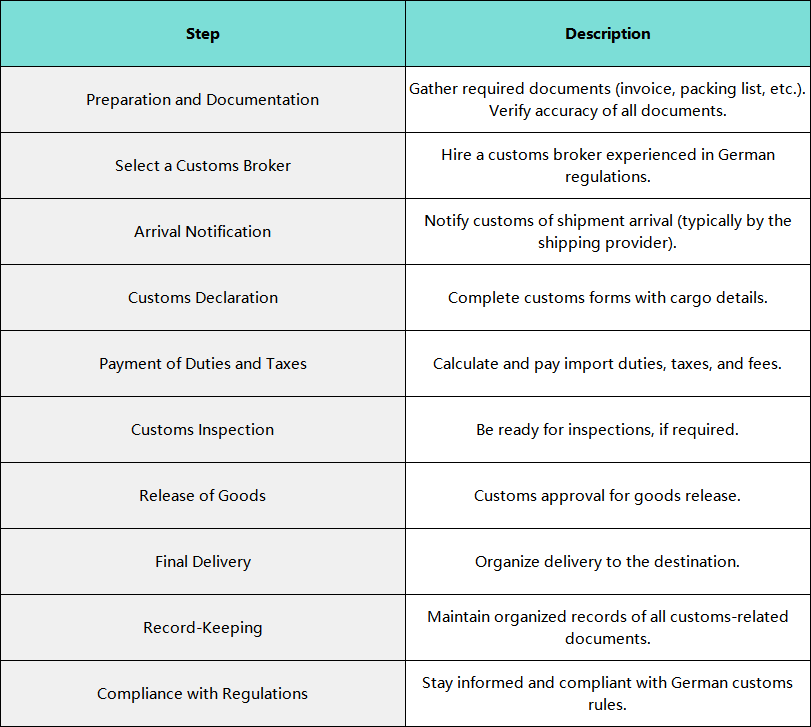
This concise table outlines the key steps involved in customs clearance for shipments from China to Hamburg.
Avoiding Common Mistakes When Shipping to Hamburg
Avoiding common mistakes when shipping from China to Hamburg is crucial to ensure a smooth and cost-effective logistics process. Some common pitfalls to avoid include inadequate documentation, which can lead to customs delays; inaccurate cargo descriptions or values that may result in fines; neglecting proper packaging, risking damage during transit; and not staying updated with changing customs regulations, potentially causing compliance issues. Moreover, failing to work with experienced customs brokers or overlooking the benefits of top shipping providers can also lead to inefficiencies. To navigate these challenges successfully, it is essential to invest time in thorough preparation, compliance checks, and partnering with professionals who understand the intricacies of shipping to Hamburg, ultimately ensuring the timely and reliable delivery of goods.
Here are eight main mistakes and their corresponding solutions:
1. Incomplete or Incorrect Documentation:
Mistake: Inadequate or inaccurate paperwork can cause customs delays and penalties.
Solution: Ensure all required documents (invoices, packing lists, certificates, etc.) are complete, accurate, and match cargo details.
2. Poor Cargo Packaging:
Mistake: Inadequate packaging can result in damage during transit.
Solution: Properly pack and label goods, adhering to international shipping standards.
3. Ignoring Customs Regulations:
Mistake: Neglecting to stay updated with evolving customs rules can lead to compliance issues.
Solution: Stay informed about German customs regulations and work with experienced customs brokers.
4. Incorrect Classification of Goods:
Mistake: Misidentifying goods can lead to incorrect duties and taxes.Solution: Verify and correctly classify goods using Harmonized System (HS) codes.
5. Inefficient Cargo Consolidation:
Mistake: Poor consolidation can increase shipping costs.
Solution: Optimize cargo consolidation to maximize container space and minimize costs.
6. Overlooking Insurance:
Mistake: Neglecting cargo insurance can lead to financial losses in case of damage or loss.
Solution: Purchase suitable cargo insurance to protect shipments.
7. Choosing the Wrong Shipping Method:
Mistake: Selecting an inappropriate shipping method can result in delays or added expenses.
Solution: Evaluate cargo type and urgency to choose the best shipping method (air, sea, rail, road, or express) accordingly.
8. Failure to Partner with Reputable Shipping Providers:
Mistake: Working with unreliable shipping providers can lead to service disruptions.
Solution: Partner with reputable shipping companies that have a track record of reliability and global reach, such as Maersk Line, MSC, or Dantful.
Why is Dantful the best freight forwarder in the Hamburg?

There are a few things you should consider when looking for a freight forwarder. The first is experience. Dantful Freight has been in the shipping industry for more than a decade and has been operating in the Hamburg market since we embarked on our journey.
We have a separate team to take care of clients from the Hamburg. The team is focused on the Hamburg market. As a result, we can guarantee a smooth and safe shipping experience.
Another important thing is the cost. We have contracts with all the big carriers and Courier companies. As a result, we can offer Hamburg customers better prices than any other company in China.
The experts will take care of all your shipments. We also have a dedicated customs department in the Hamburg, which is always updated in accordance with the Hamburg Customs policy.
Whether it is LCL or door-to-door, Dantful Freight always offers Hamburg customers the best shipping experience.

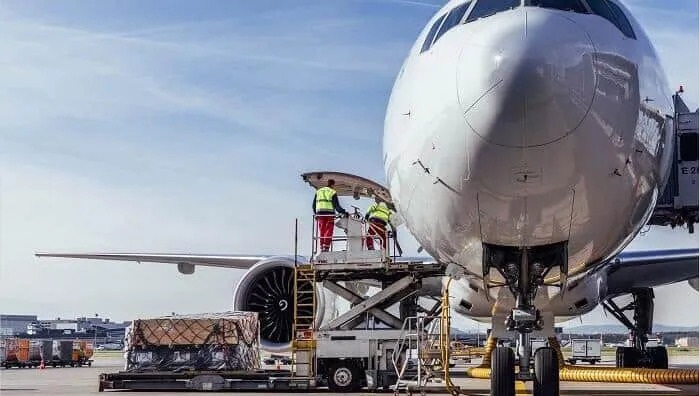









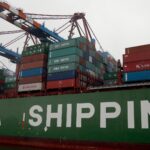
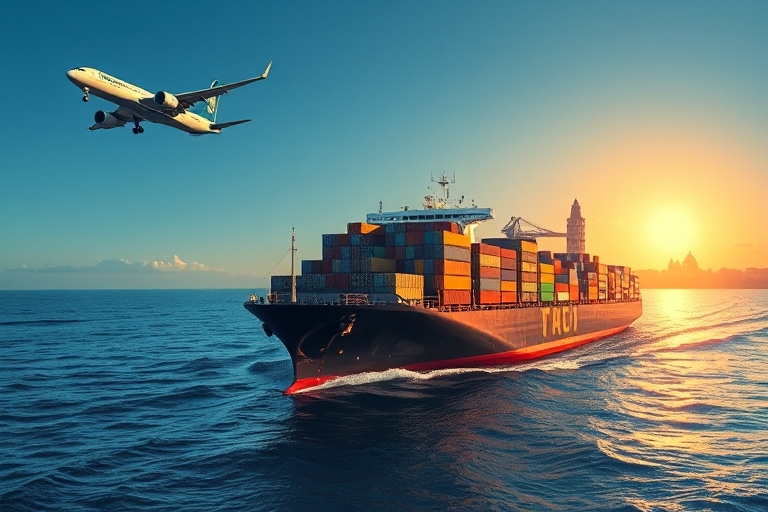
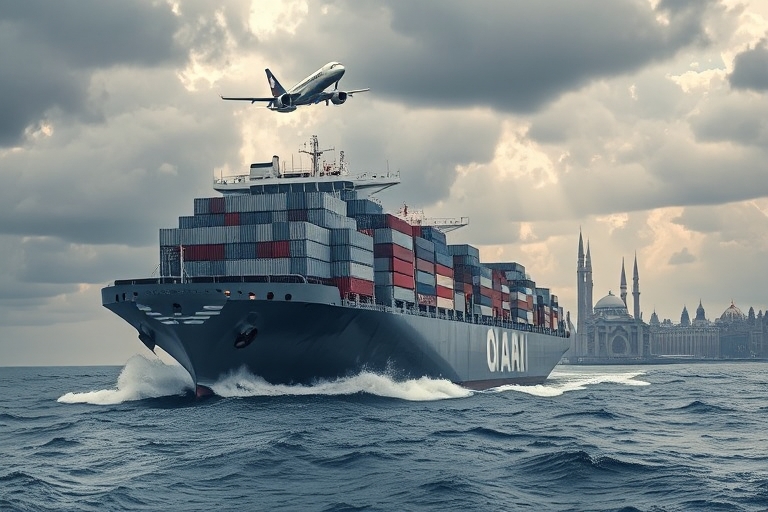
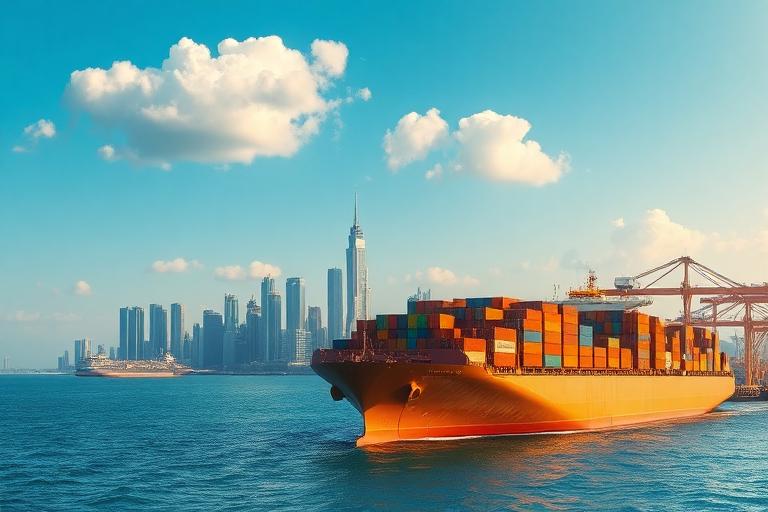
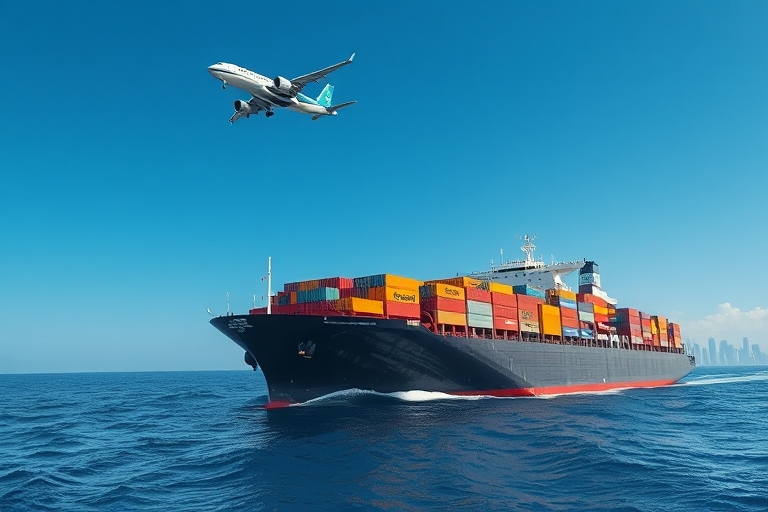
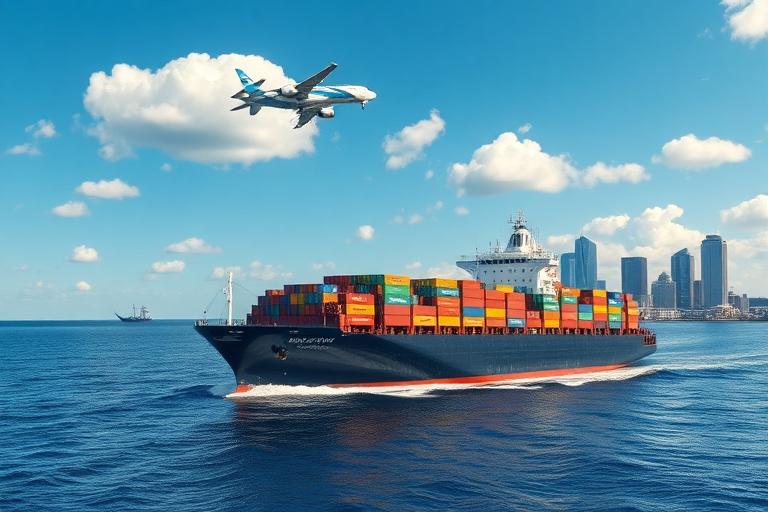





 Afrikaans
Afrikaans Shqip
Shqip አማርኛ
አማርኛ العربية
العربية Հայերեն
Հայերեն Azərbaycan dili
Azərbaycan dili Euskara
Euskara Беларуская мова
Беларуская мова বাংলা
বাংলা Bosanski
Bosanski Български
Български Català
Català Cebuano
Cebuano Chichewa
Chichewa 简体中文
简体中文 繁體中文
繁體中文 Corsu
Corsu Hrvatski
Hrvatski Čeština
Čeština Dansk
Dansk Nederlands
Nederlands English
English Esperanto
Esperanto Eesti
Eesti Filipino
Filipino Suomi
Suomi Français
Français Galego
Galego ქართული
ქართული Deutsch
Deutsch Ελληνικά
Ελληνικά Kreyol ayisyen
Kreyol ayisyen Harshen Hausa
Harshen Hausa Ōlelo Hawaiʻi
Ōlelo Hawaiʻi עִבְרִית
עִבְרִית हिन्दी
हिन्दी Hmong
Hmong Magyar
Magyar Íslenska
Íslenska Igbo
Igbo Bahasa Indonesia
Bahasa Indonesia Gaeilge
Gaeilge Italiano
Italiano 日本語
日本語 Basa Jawa
Basa Jawa ಕನ್ನಡ
ಕನ್ನಡ Қазақ тілі
Қазақ тілі ភាសាខ្មែរ
ភាសាខ្មែរ 한국어
한국어 كوردی
كوردی Кыргызча
Кыргызча ພາສາລາວ
ພາສາລາວ Latin
Latin Latviešu valoda
Latviešu valoda Lietuvių kalba
Lietuvių kalba Lëtzebuergesch
Lëtzebuergesch Македонски јазик
Македонски јазик Malagasy
Malagasy Bahasa Melayu
Bahasa Melayu മലയാളം
മലയാളം Maltese
Maltese Te Reo Māori
Te Reo Māori मराठी
मराठी Монгол
Монгол ဗမာစာ
ဗမာစာ नेपाली
नेपाली Norsk bokmål
Norsk bokmål پښتو
پښتو فارسی
فارسی Polski
Polski Português
Português ਪੰਜਾਬੀ
ਪੰਜਾਬੀ Română
Română Русский
Русский Samoan
Samoan Gàidhlig
Gàidhlig Српски језик
Српски језик Sesotho
Sesotho Shona
Shona سنڌي
سنڌي සිංහල
සිංහල Slovenčina
Slovenčina Slovenščina
Slovenščina Afsoomaali
Afsoomaali Español
Español Basa Sunda
Basa Sunda Kiswahili
Kiswahili Svenska
Svenska Тоҷикӣ
Тоҷикӣ தமிழ்
தமிழ் తెలుగు
తెలుగు ไทย
ไทย Türkçe
Türkçe Українська
Українська اردو
اردو O‘zbekcha
O‘zbekcha Tiếng Việt
Tiếng Việt Cymraeg
Cymraeg יידיש
יידיש Yorùbá
Yorùbá Zulu
Zulu